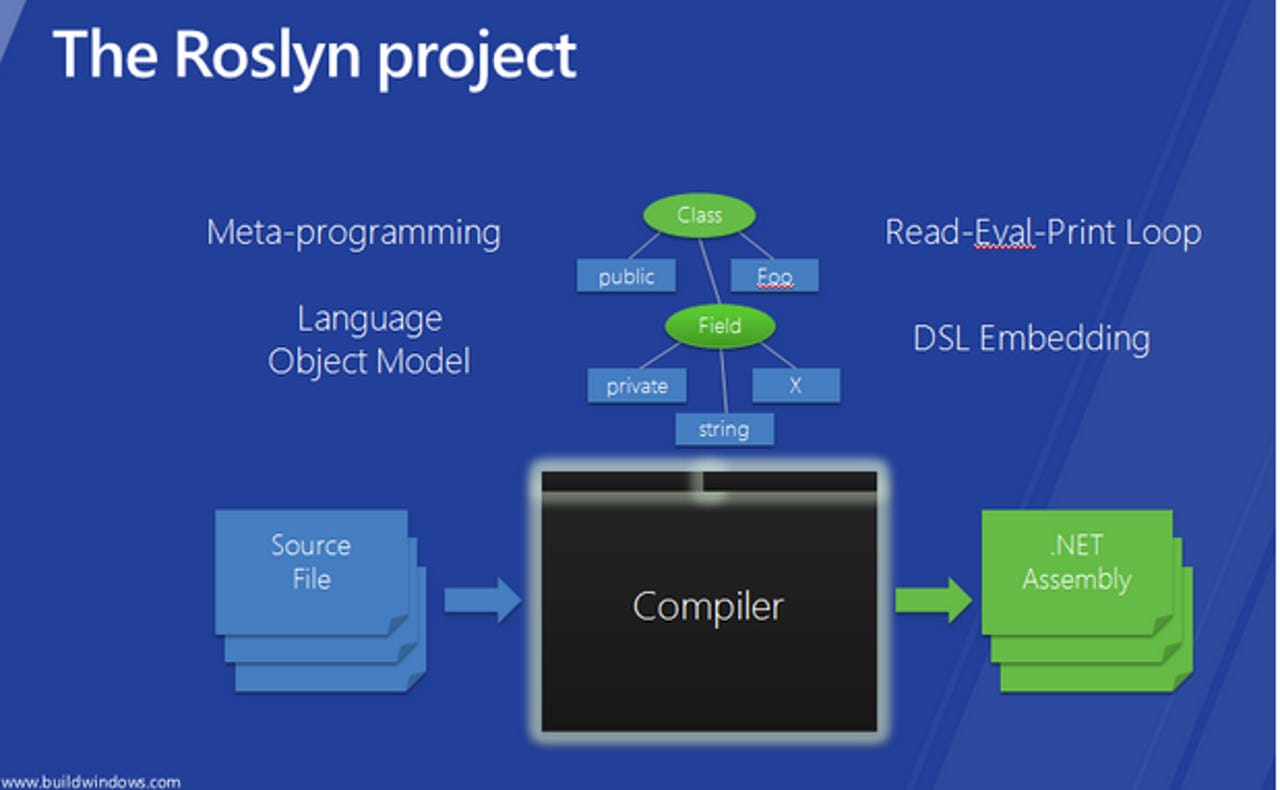Microsoft's Roslyn 'compiler as a service' inches forward

Microsoft is internally dogfooding its "Roslyn" compiler as a service technology, and is compiling internal daily builds of Visual Studio using "Roslyn."

That update, courtesy of a Microsoft December 16 blog post, is the first Microsoft has shared about its Roslyn technology in more than a year.
Microsoft's Roslyn effort is about re-architecting the C# and VB compilers to support "compiler as a service" (CaaS) scenarios. Currently, a compiler is a black box; with Roslyn, Microsoft is working on opening it up so that all of the information processed via a compiler is available in application programming interface (API) form.
Microsoft's most recent Roslyn description (according to a December 16 "C# Frequently Asked Questions" blog post) is "a replacement for our VB & C# compilers (and certain IDE pieces that leverage them)." The technology will allow developers "to reach inside the compiler iself," which according to Microsoft "will lead to far richer IDE (integrated development environment) and diagnostics being able to be developed at considerably reduced effort and cost."
Back in 2011, I noted that Roslyn would be a post-Visual Studio 2012 deliverable. It turned out it also is a post-Visual Studio 2013 one, as well.
Microsoft's last generally-available preview of Roslyn was out in September 2012.
"Yeah, we do feel a bit embarrassed about that," blogged Matt Gertz, VS Managed Languages Development Manager. "Yes, we’ve been a little quiet. No, there was nothing wrong going on here, things were actually going extremely well."
There's no word in today's post if there will be another Roslyn preview coming soon, or if the team will release the code as part of one of the expected Visual Studio 2013 updates in 2014. I've asked Microsoft execs; no word back so far.